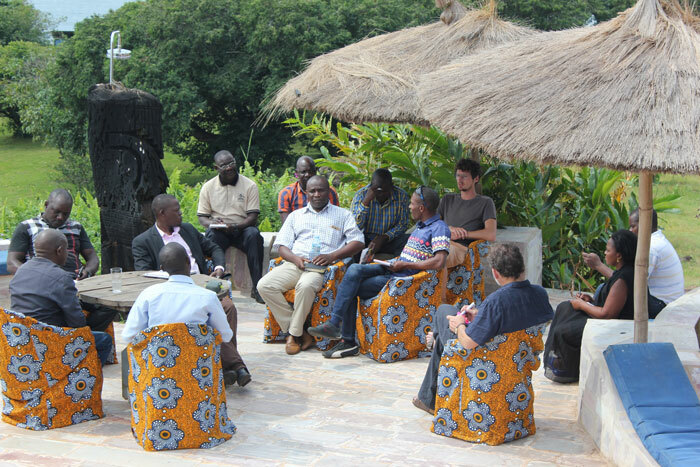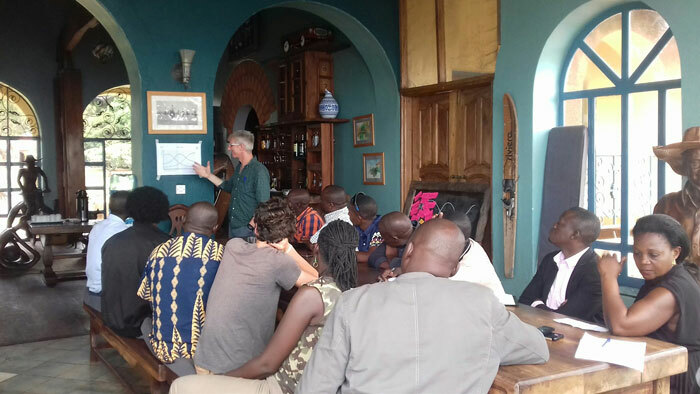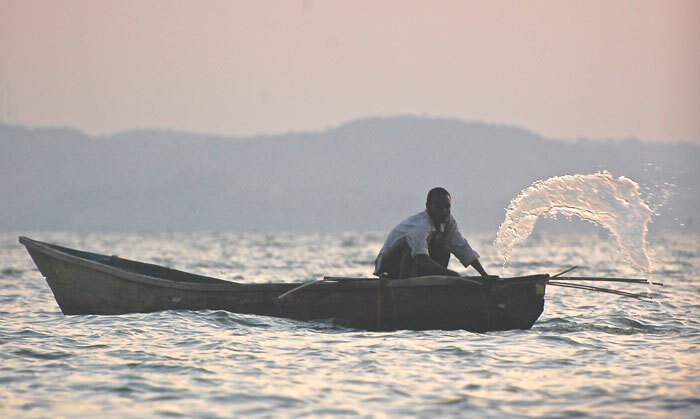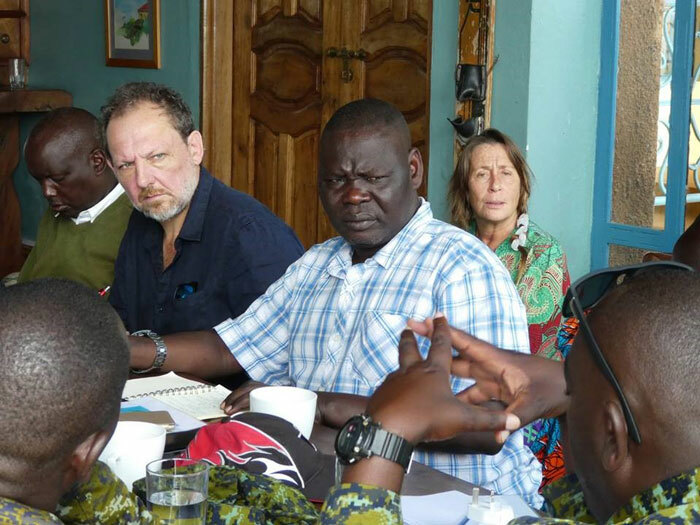Bulago Island initiative bears fruits
Jul 19, 2018
The initiative is encouraging cooperation and socially just conservation methods among the small fishing community on the island.

Minute villa at the island where the summit was held
By Niall Readfern
Local fishing communities on Lake Victoria's islands could become empowered enough to transform their fisheries into beacons of sustainability if an initiative birthed on Bulago Island bears positive results.
The initiative is encouraging cooperation and socially just conservation methods among the small fishing community on the island.
Time to transform Uganda's fishing practices.
The initiative was unveiled at a three-day summit held at the heart of Uganda's first Lacustrine Protected Area (LPA) on Bulago Island at the end of June.
The summit's mission was to bring together every stakeholder who had a concern or interest in Uganda's first Lacustrine Protected Area (LPA) and the fisheries industry.

Group discussion exercise
The summit marked the culmination of 20 years of work by Lake Victoria Sailing Company Ltd (LVSC), the company that has been developing Bulago Island Resort since 1998.
For many years LVSC petitioned the government to gazette the LPA which was eventually enacted in 2007, making it Uganda's first marine protected area.
Although it has been gazetted since 2007, little had been done to enforce and implement it until now.
With the enforcement of the President's initiative to stop illegal fishing practices and the government's introduction of new regulations to protect and encourage fish stocks, the implementation of the LPA was identified as the next step towards long-term sustainability.

Professor Adrian Martin introducing the three Horizon method of conservation
Kuokoa's co-management approach does not exclude all fishing practices within the LPA, but instead offers a controlled area, in which it will be trialing this different approach to fisheries management, in-fact, one that returns to the traditional values of lake communities.
New to Uganda, this approach moves towards what is called "area access fisheries" and confines specific fishermen to allocated fishing territories or zones, reducing the transitory nature of fishermen and empowering local communities to better manage their adjacent fishery, free from competitive fishing.
In order to gain access to a community's territory, fishermen will be encouraged to join together into co-operatives. New members must be vouched for by the community and must be in possession of National IDs and TIN numbers.
Bulago is the only inhabited island within the LPA, with established infrastructure, security and tourism and the only island completely surrounded by protected waters.

Time to transform Uganda's fishing practices
Over the last 18 months, Kuokoa has been working with the small community of 35 fishermen on Bulago Island to prepare them for this pilot programme. Although a small number, they will form the pilot fishing co-operative. This will allow those guiding the project to identify and correct anomalies in the approach.As a result of the summit, Kuokoa will now be working with Dr Anthony Taabu-Munyaho, the Executive Director of NaFIRRI, who will be supervising extensive research to inform the process of identifying the co-operative's allocated fishing territories.
NaFIRRI will also be carrying out research to track the overall progress of the project both environmentally and socio-economically. Once stakeholders are confident of the all-round benefits of this fisheries management model, this approach could be extended to surrounding fishing communities for testing on a larger scale.
Professor Adrian Martin introducing the three Horizon method of conservation.
The Environmental Conflict Transformation summit was led by Adrian Martin, Professor of Environment & Development at the University of East Anglia, UK.
The summit gave the gathered stakeholders the opportunity to discuss the current methods and regulations being employed to curb illegal fishing, to compare research and ideas to sustainably arrest the declining fishing industry and to discuss for the first time how to develop the gazetted LPA as a tool for achieving long-term sustainability.

Sgt. Gordon Musinguzi, UPDF Fisheries Enforcement Unit describing new fishing regulations
The summit also offered a rare opportunity for often fragmented organizations and stakeholders to listen to one another's perspectives in order to understand each other's concerns and ideas.
Also participating in the summit was Joyce Aanyu the Assistant Commissioner of Fisheries, Dr. Charles Muchunguzi, a Social Scientist at Mbarara University of Technology and Science, whose ideas on social businesses for island communities could help the transition away from fishing as the only livelihood.
The summit attracted high-level representation from UPDF's Fisheries Enforcement Unit, MAAIF, NaFIRRI, NARO, Mukono District Office, Marine Police and Operation Wealth Creation; as well as Local Councils, Fisheries committees, Universities from across East Africa, conservation NGOs and knowledgeable individuals.
It produced some concrete first steps that will now be acted upon. There are plenty of challenges to overcome, and a long road ahead before Uganda's fisheries return to their former prosperity, but we begin the journey hopeful that together, by involving all those directly affected, we can navigate ourselves to a sustainable future.
Niall Readfern is the Executive Director, Kuokoa
